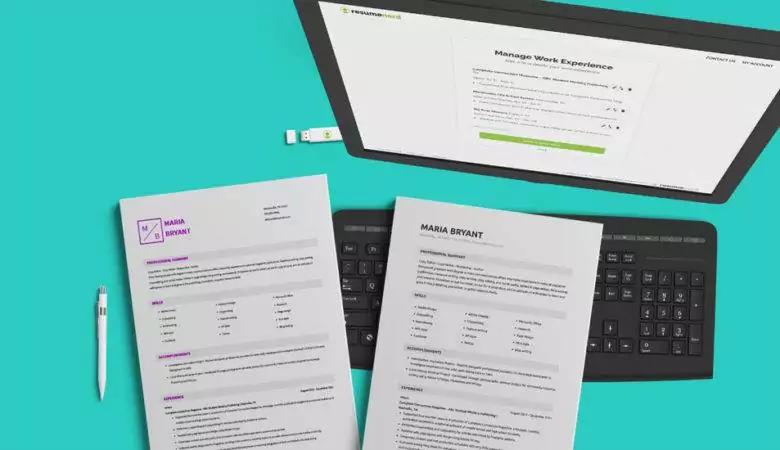A business manager plays a major role in a company’s success. Here are examples and tips to show you can write the perfect resume for a business manager position.

Stunning Business Manager Resume Examples for This Year
Business Manager Resume Examples
Business managers are a key component to the success of any business. As a business manager, you’ll be handling both everyday and the specialized areas of business functions, centered around managerial work and helping workers complete their tasks. If you’re looking to write a professional resume for a business manager position, here are a few pointers.

What To Highlight in a Business Manager Resume
First of all, remember that you need to highlight your ability to do this type of work. That means showcasing your managerial skills, whether it’s by showing off previous management positions, indicating how your management work helped a previous company, or even presenting results that show you’re a natural leader.
Structure of a Business Manager Resume
Your first step is to choose the right resume format. There are three common resume formats: functional, chronological, and combination. Each of these formats focuses on a different area of your professional profile – the format that works best for you will depend on your background. Chronological formats tend to work best for managerial positions, as they display your extensive work experience. When you write your resume, choose the right format, then make your way through these resume sections.
Header
Your header will be part of whatever resume template you choose. This is where you put your contact information, such as your phone number, email address and professional social media links, such as your LinkedIn profile. Double-check your contact information before submitting your best resume to ensure your contact information is correct, so a recruiter can contact you.
Resume summary or objective
Depending on how much experience you have, you will choose either a resume summary or resume objective. The resume summary is for people with more experience and is more appropriate for managerial positions, as focuses on your experiences and most notable achievements. The resume objective is for people with less experience, and focuses on your skills, education and overall career objectives.
Skills
Your skills section needs to include both hard skills and soft skills, so a hiring manager knows you have the technical skills necessary to do the job, as well as the soft skills necessary to get along with others. Here are some bullet points for management skills you can consider adding to your professional resume:
- Business development
- Project management
- Knowledge of business operations and business strategies
- Communication
- Optimization
- Problem-solving
- Ability to work with team members
- General business acumen
- Customer satisfaction
- Business plans
- Forecasting business changes
- Handling new initiatives
- Interpersonal skills
- Microsoft Office Suite, including PowerPoint and Excel
- Strategic planning
- Working with startup companies
Narrow down these bullet points to 8-12 of your best skills, and try to match them to skills in the job description – this will show the recruiter that you are the perfect candidate for the job.
Work history
Your work experience section should include all previous relevant experience. Here are a few job titles that are appropriate to include on a business manager resume:
- Operations manager
- Business administration
- General manager
- Human resources
- Office manager
- Sales team lead
- Senior management
Follow our example and list your experience in reverse-chronological order, with your most relevant job listed first, along with a list of top responsibilities and achievements for each position.
Education
Your education section may be robust, depending on what position you’re applying for. Many business managers have at least a bachelor’s degree in a business-related field. Make sure to also include specialized training or certifications in this section. There are many certifications a business manager may have, including a Certified Manager Certification (CM), Certified Management Accountant (CMA), or a Project Management Professional (PMP) certification among many others.
Do’s and Don’ts for a Business Manager Resume
When writing your business manager resume, keep the following tips in mind:
-
Do:
- Emphasize previous management positions, even if you weren’t specifically a business manager. Showcasing any management skills can improve your resume.
- Discuss your accomplishments using metrics as often as possible (e.g., “Initiated program that increased profits by 14%”). You should actively indicate how you’ve helped other companies, and metrics are one of the best ways to do it.
- Include specialized skills that you’re good at. You’re trying to showcase the benefits of having you on the team, not someone similar to you.
-
Don’t:
- Include completely irrelevant work experience. If you include a previous position, you should be able to connect it to the job you’re trying to get right now.
- Add generalized skills that most people have. This can make it look like you’re trying to pad your resume, whether or not you are.
- Talk poorly about any previous position. This can make a hiring manager worry that you could do the same to them.
FAQ: Business Manager Resumes
A cover letter is always a good part of any job application. Even if you’re not required to add one to your job application, you can use it to discuss exactly what you’re good at, how you’ve been able to benefit past companies and what brought you here. It can set you apart from the job seekers who don’t have a cover letter. When you’re ready to write a cover letter, you can use the ResumeNerd cover letter builder to do so.
When you’re applying for an entry-level job, you may not have a lot of experience as a business manager. If you don’t have this professional experience, you need to focus on other parts of your resume. Spotlight your skills and expertise, as well as any education and certifications you have. It’s also a good idea to include any education that might boost your chances. For example, you might include other business experience where you took a leadership role.
The best resume for each job will be different, as there’s no such thing as a single perfect resume. However, finding that resume requires you to change your resume depending on the job description. Read through the job posting and look for keywords, like specific skills and knowledge that the recruiter indicated in the description itself. This can help you guide your job search and include the right skills in your resume.








